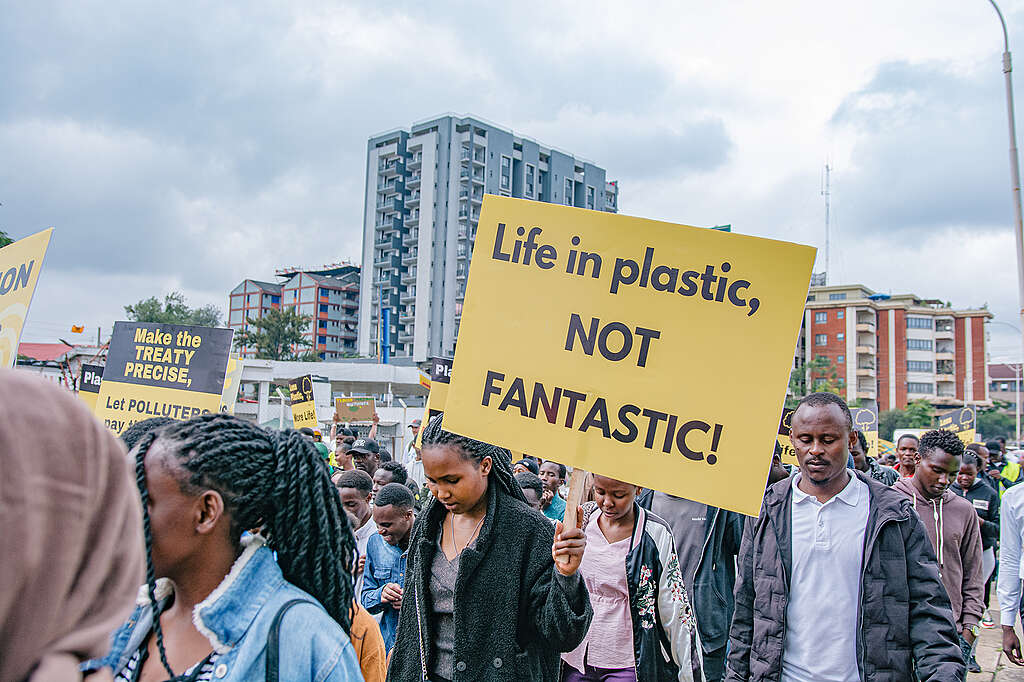An estimated 2400 tonnes of waste is produced daily in Nairobi, about 20% of this is plastic waste. These may just be meaningless numbers to many, until the rains come and the sight of choked drainage and waterways becomes an eyesore. Rising urban pressure and inadequate waste management have increased the risks of environmental degradation for many cities such as Nairobi. Plastic pollution is a menace and has emerged as one of the most pressing environmental issues of our time.

Africa has made great strides on the journey to a plastic-free continent with some milestones to celebrate. Out of 54 states, 34 have passed a law banning plastics. However, our steps are still heavy when it comes to the implementation of these regulations. Kenya, for instance, banned single-use plastic carrier bags in 2017; a ban that was hailed as ground-breaking by other countries and the United Nations. Yet supermarkets and local green grocers have found ways to let single-use plastic sneak back to the markets and into our lives in the form of plastic nets instead of bags. We also have cases of plastics smuggled into Kenya from its neighbours. This is an example of how inadequate the enforcement of these regulations are.
All across Africa, plastic pollution is devastating communities’ health, the environment and the ecosystem that millions depend on for their livelihoods. The images of large hazardous pieces of plastic waste consumed by wildlife are painful to see. Humans inadvertently consume unfathomable quantities of microplastics as well, through food, sea salt, drinking water and even the air we breathe. While the overall effects are not yet known, microplastics are known to damage human cells; there are concerns they could affect immune functions. A recent UN report shows that plastic pollution has disproportionate impacts on minority groups and marginalised communities and countries.
The science is clear, plastic production and climate change are inextricably linked. About 99% of plastics are made from fossil fuels which are the biggest contributors of climate change. At every stage of its life cycle plastic creates billions of tonnes of greenhouse gases. Cutting single-use plastic production by at least 75% by 2040 is in line with the goal of keeping global warming below 1.5 degrees to avoid the worst impacts of the climate crisis.
Plastic pollution is a critical transboundary issue. This makes it important for all African member states to strongly support a global response. A strong global plastic treaty will enable African countries to tackle challenges such as the continued scramble to dump plastic waste from wealthy nations into Africa.
Furthermore, corporate capture of certain African governments is evident, as they continue bowing to pressure from big business and the plastic industry. Through lobbying, public relations campaigns and misinformation, corporations continue to greenwash and are able to bring a wide range of actors onboard in support of more production and preach recycling as a solution to the plastic crisis.
Africa’s governments must not echo the petrochemical industry, but rather have high ambition in championing a strong global plastics treaty that puts an immediate cap on plastic production and phase out polymers of concern. More Africans are rising against the neocolonial dumping of waste in our continent. They reject the influence of oil-producing countries and petrochemical companies that slows down the treaty negotiation process and weaken its ambition.
The ‘Zero Draft’ of the treaty provides a basis upon which member states can build on and realise an ambitious instrument to finally end the age of plastics. We need to see more courage and commitment from the African group of negotiators to achieve this. Africa and the world at large need a strong treaty rooted in justice, human rights and fairness; one that will ensure equitable transition for workers and the health of the most affected communities. The next round of negotiations over a global treaty will take place in mid November in Nairobi and it is the opportunity for African leaders to prove that they hear the cry of their people and that they have the courage for decisive action.
African leaders should support an ambitious treaty to solve the crisis by tackling the full life cycle of plastic: from production to its disposal. Once adopted, they should also put in place effective implementation plans of the treaty at the national level. Our leaders should commit to creating decent jobs in the new plastic pollution-free economy and a just transition for workers across the entire life cycle. Such commitments need to move away from interventions that continue to perpetuate the current systemic failures such as plastic waste imports.
Africa has the power to enable the change that is needed to address the challenges presented by the global plastic crisis. Pan African cooperation is needed in forging a plastic pollution-free continent. A Global treaty to end plastic pollution is an opportunity for our leadership to present a united front and credibly demonstrate the commitments they have made in addressing plastic pollution on the continent.
Authored by
Hellen Kahaso Dena
Project Lead – Pan-African Plastics Project | Greenpeace Africa
